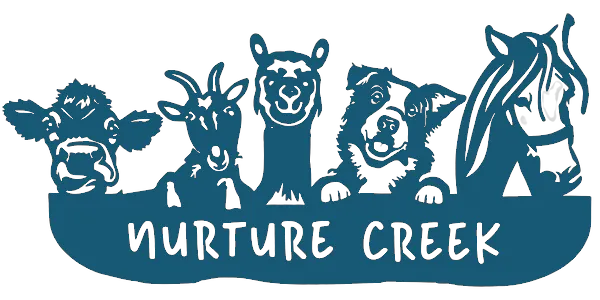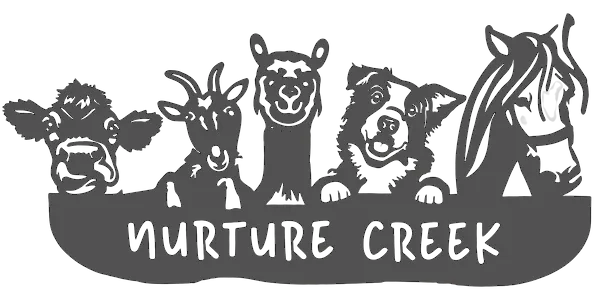Why Nature (Not Another Activity) Is The Best Thing You Can Give Your Neurodiverse Kid
You know what I’ve noticed after years of watching families bring their kids to the farm? The happiest, calmest, most themselves kids - the ones who seem to glow from the inside out - all have one thing in common. It’s not therapy. It’s not more activities.
It’s nature. Simple, beautiful, dirt-under-their-fingernails, wandering-with-no-purpose.
These kids potter in veggie gardens, swing from trees, hang out with the family dog, pick four-leaf clovers like it’s serious business, and just… be. No rush. No rules. No schedules. And you can literally see them exhale.
And then there are the poor little souls who arrive already frazzled:
Monday - Speech therapy,
Tuesday - Soccer,
Wednesday - Swimming,
Thursday - Piano, Friday - Dinner with the grandies,
Saturday - Psych appointment,
Sunday - More sports.
These kids are done. Cooked. Wiped out. They’re can’t do school, struggle to talk, and honestly - who could blame them? Their little nervous systems are fried. They don’t need another structured activity or a sticker chart. They need space. Time. Air. Quiet.
Steve Biddulph (child psychologist) breaks it down into these lovely, simple stages:
0-6 Years: All About Heart
These are the years where kids need to feel safe, loved, snuggled, and connected. For our neurodiverse kids, this stage might last a bit longer - and that’s perfectly okay.
6-14 Years: Building Their Backbone
This is when they start figuring out who they are. But it’s not about filling every afternoon with clubs and competitions. It’s about gentle guidance, role models, and, yes, a whole lot of play.
14+ Years: Mentors and Meaningful Stuff
Teenagers need to stretch their wings a bit, look beyond home, and find people who inspire them. But they still need grounding. They still need their calm.
And with neurodiverse kids? These stages don’t always run on a set schedule. Follow the child, not the calendar.
Here’s what I see on the farm - again and again. Nature works its magic in ways we can’t always explain.
The kids who thrive? They’re the ones who…
- Watch cows munching grass like it’s the world’s slowest soap opera
- Explore the bush, imagining fairies behind every tree
- Lie on the grass, staring at clouds and letting their thoughts wander
- Spend actual hours just feeling safe, loved, and accepted
This isn’t wasted time. This is where nervous systems reset, resilience grows, and confidence quietly takes root.
And honestly, the stories I could tell! During Covid, our own kids would head out and read books - to the goats. Yes, really. Whole novels, chapter books, read aloud to a very unimpressed audience of goats. They’d then wander the paddocks for hours, doing what looked like absolutely nothing - walking circles, poking around in the grass - and they’ll tell you now it was some of the happiest, most peaceful time of their lives.
Want a shining example? Look at Vanuatu - often ranked among the happiest people on earth. Their kids don’t have screens glued to their faces. They don’t fill their weeks with back-to-back activities. They’re surrounded by family, nature, and a deep connection to the world around them. That connection grounds them. Fills them up. Makes them whole.
We are meant to feel connected to the earth. But somewhere along the way, modern life convinced us otherwise. Now we only remember to slow down and reconnect on holidays. (And even then, we’re usually still checking emails…)
When families first arrive at the farm, they’ve usually got big plans. Let’s see this! Let’s do that! But if left too follow their hearts, the kids show what they really need. They find a tree to climb or a paddock to wander, and suddenly - they’re calmer, happier, more themselves.
Just these holidays, we had a little girl find a four-leaf clover. While walking Trixi our sheep in their back yard, she bobbed down and held up her tiny treasure with the biggest, proudest grin. I snapped a photo of her - beaming, clover in hand - and showed it to the next family who visited.
Well, the little boy in that family wasn’t about to miss out. He spent hours - truly, hours - slowly scanning every clover patch he could find, eyes glued to the ground, determined to have his moment too. And wouldn’t you know it? He found one.
That’s the magic right there. Whether it’s searching for a 4 leaf clover, finding a tiny mushroom village, or simply walking little paths into the grass, this is where childhood really happens. This is where confidence grows - not loudly, not quickly, but in those gentle, quiet moments when no one’s in a rush and nothing else matters.
They sleep better. They talk more. They laugh louder. They melt down less.
It’s not rocket science.
A connected, calm child is a confident child. An overwhelmed, rushed child? Not so much.
So if you’re raising a neurodiverse child, here’s my heartfelt advice:
- More isn’t always better.
- Slower is smarter.
- Nature is magic.
Let them swing, wander, wonder, and rest. Give them time to catch up to the pace of their own lives.
They won’t thank you with words straight away - but you’ll see it. In how they stand a little taller. In how they breathe a little deeper. In how they laugh from their belly again.
That’s the magic of less-. And the quiet, powerful gift of nature.
Relax in Nature
Want an Adventure?


